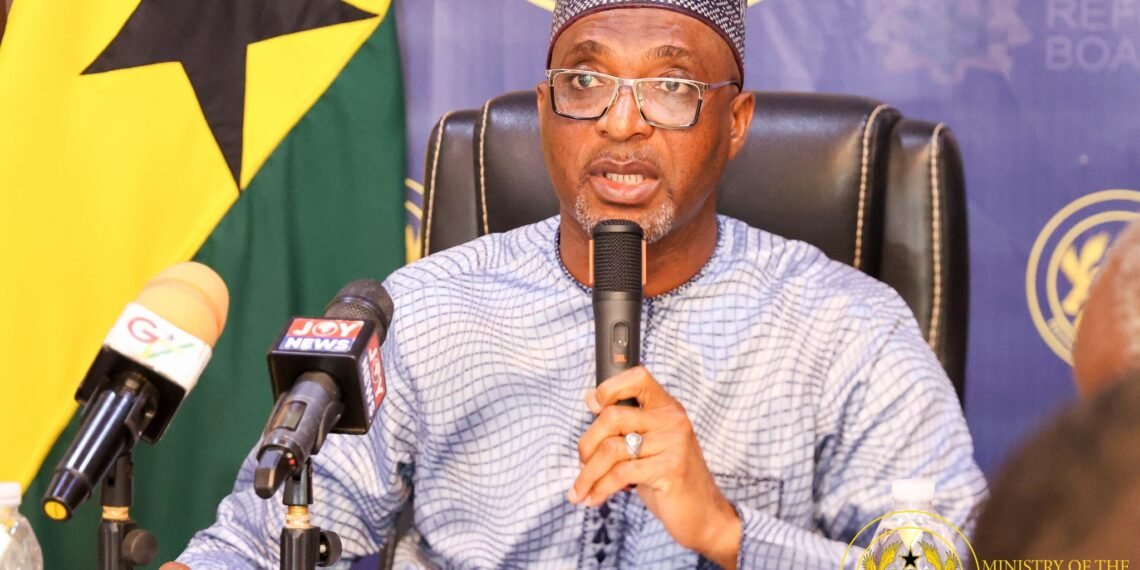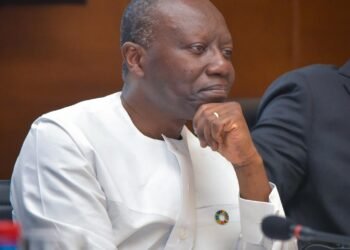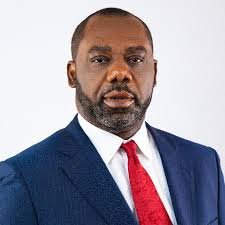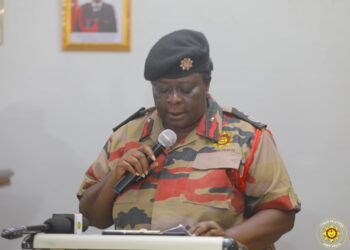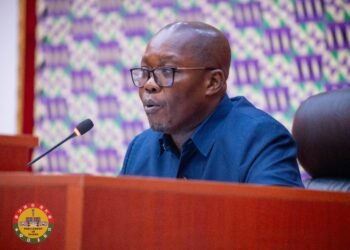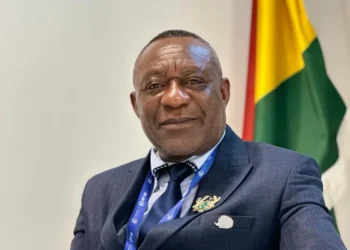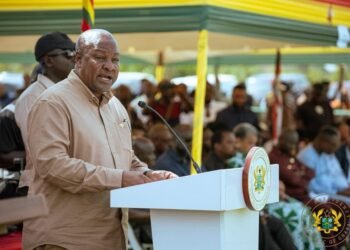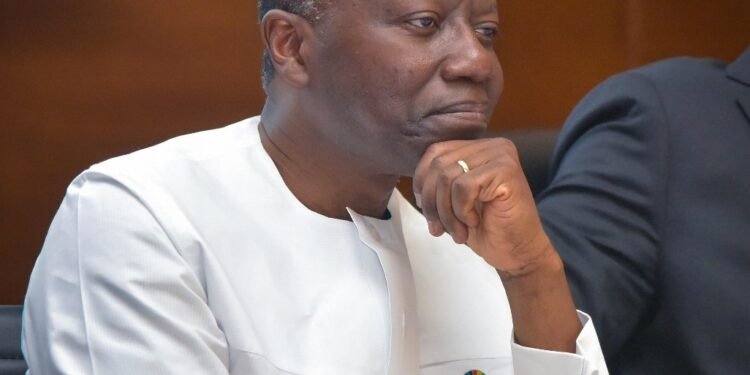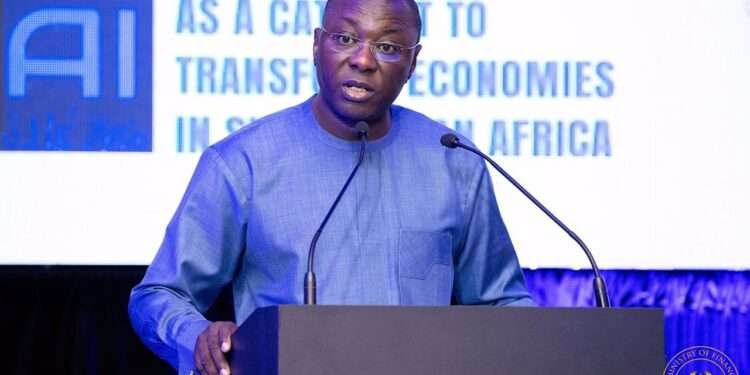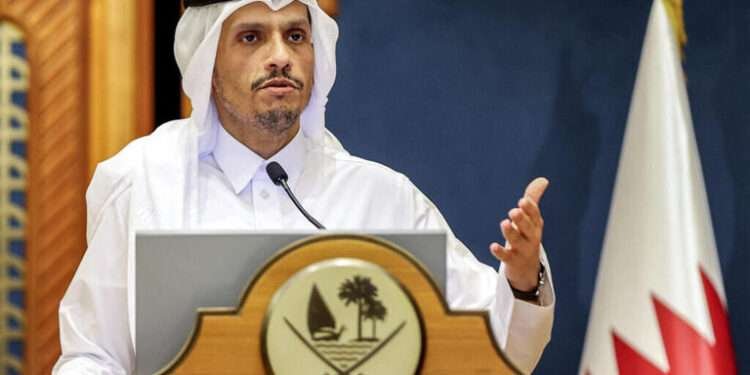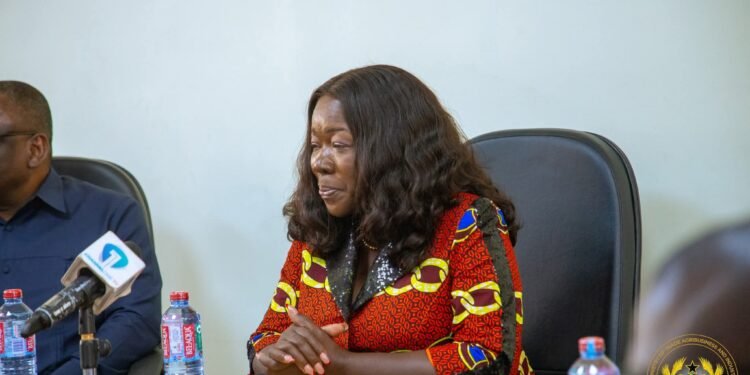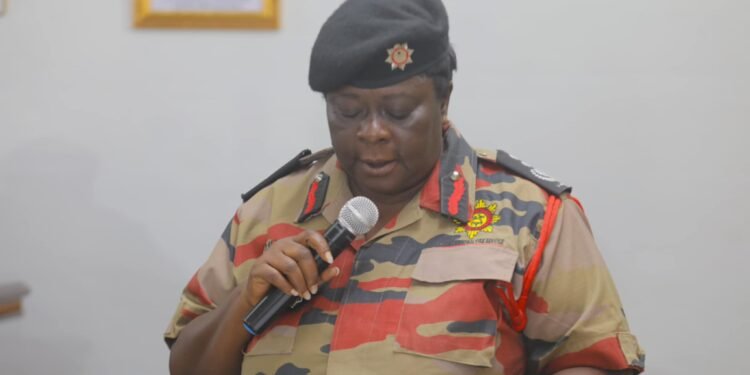Ghana’s Interior Minister, Hon. Mubarak Mohammed Muntaka, has announced encouraging progress in the government’s efforts to restore peace and stability in Gbenyiri and its surrounding communities following weeks of violent clashes.
According to the Minister, more than 65 percent of the residents displaced by the conflict have already returned home, raising hopes that the remaining victims will soon follow.
“Our biggest concern, however, remains those still outside the borders. Many are already coming back, but we want to facilitate the process to make it even faster. We are receiving strong cooperation from the chiefs and the youth.”
Interior Minister, Hon. Mubarak Mohammed Muntaka
The Gbenyiri conflict erupted on August 23, 2025, in the Sawla-Tuna-Kalba District of the Savannah Region, stemming from a land dispute that quickly spiraled into violent clashes.
Within days, the disturbances spread to neighboring villages, leaving behind devastation and grief. Several people were killed, while homes, farms, and other properties were destroyed.
The violence triggered a humanitarian crisis, displacing more than 50,000 residents and forcing many to seek refuge in makeshift camps or flee across district and regional borders.

The magnitude of the conflict drew urgent national attention, with both government and humanitarian agencies mobilizing to address the unfolding crisis.
The Interior Minister, in response to the scale of the violence, inaugurated a seven-member mediation committee on September 8, 2025. The committee is chaired by Emmanuel Habuka Bombande, a respected conflict resolution expert and former Deputy Minister of Foreign Affairs, and is tasked with facilitating dialogue among stakeholders to ensure a sustainable settlement of the dispute.
Encouraging Signs
For Hon. Muntaka, the early signs of progress are encouraging. He credited traditional leaders and youth groups for their collaboration in fostering reconciliation and facilitating the return of displaced residents.
“We are receiving strong cooperation from the chiefs and the youth. That cooperation is critical because without their leadership and involvement, the return process would face serious challenges.”
Interior Minister, Hon. Mubarak Mohammed Muntaka
However, the Minister acknowledged that resettlement is only one aspect of the recovery process. Many of the displaced residents have lost homes, livelihoods, and access to essential services, making reintegration a complex challenge.
Humanitarian organizations working in the area have echoed similar concerns, calling for support not only in restoring peace but also in rebuilding communities.
According to the Minister, security has also been reinforced in the conflict zone to prevent further outbreaks of violence, stressing that additional police and military units have been deployed to maintain order and reassure returning families of their safety. For many of the displaced, this visible presence has provided the confidence needed to begin the journey back home.

The Gbenyiri conflict underscores the persistent risks posed by unresolved land disputes across Ghana, particularly in areas where land rights overlap with chieftaincy and ethnic claims.
Such disputes often escalate quickly into violence, disrupting communities and overwhelming local authorities. The government’s reliance on mediation led by a neutral and experienced figure such as Bombande reflects an understanding of the deep-rooted nature of these disputes and the need for consensus-driven solutions.
Optimism of Mediation Process
Hon. Muntaka expressed optimism that the mediation committee’s recommendations will not only help stabilize Gbenyiri but also provide a framework for preventing similar conflicts in the future.
He stressed that the committee’s findings would be respected and implemented to the fullest extent. “By the end of the month, when the committee completes its work, we should be able to bring almost everyone back home,” he reiterated, underscoring his commitment to both immediate resettlement and long-term peace.
Despite the cautious optimism, challenges remain. The humanitarian toll of the conflict is severe, with thousands of families facing food insecurity, lack of shelter, and limited access to healthcare.
Relief agencies have urged the government to complement peacebuilding with urgent humanitarian interventions to restore dignity to the displaced. Schools in the affected communities have also been disrupted, compounding the social impact of the crisis.
However, the ongoing returns signal a turning point. The Interior Minister’s assurances, coupled with the visible efforts of the mediation committee, have instilled a sense of hope among residents.
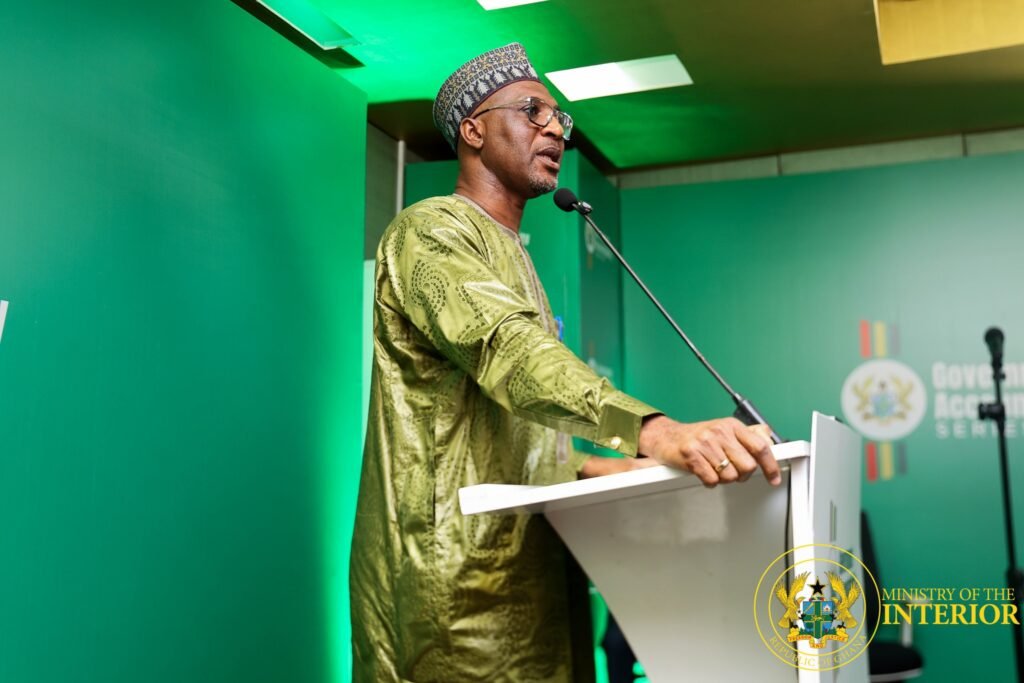
The coming weeks will prove critical, as the mediation committee finalizes its recommendations and the government works to achieve its ambitious target of full return by the end of September.
If successful, the Gbenyiri peace effort could serve as a model for conflict resolution across the country, demonstrating how swift intervention, local cooperation, and inclusive dialogue can turn the tide in times of crisis.
For now, the Interior Minister remains focused on delivering results. “That is the target,” Hon. Muntaka said of his end-of-month deadline. “And with the cooperation we are receiving, I believe it is achievable.”
READ ALSO: PURC Promises to Protect Consumers as Utilities Push for Sharp Tariff Hikes

